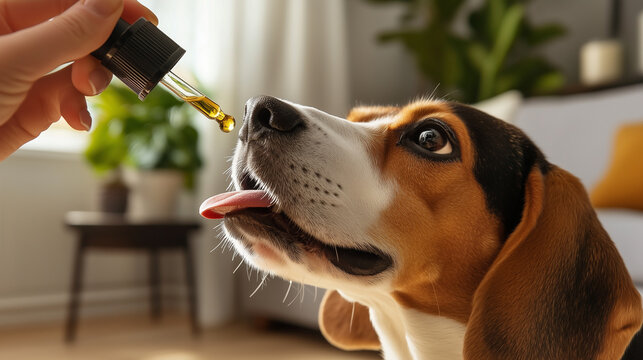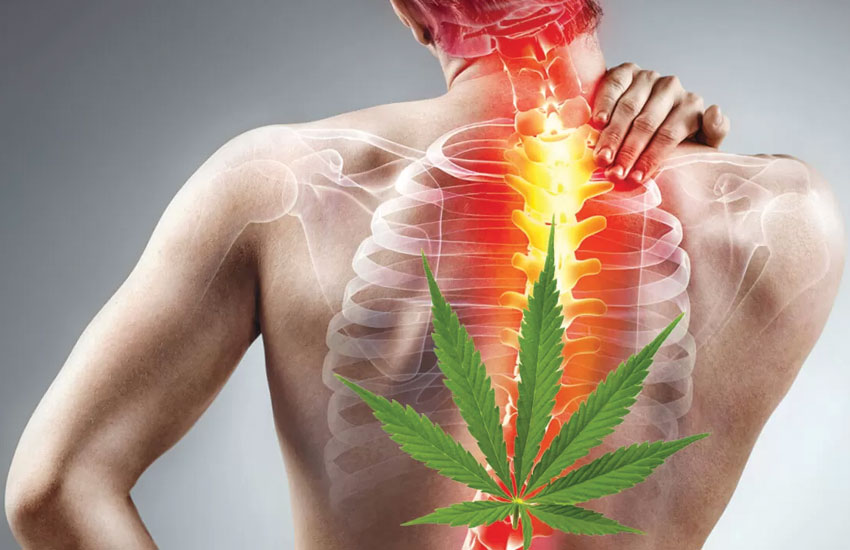How Long Does CBG Stay In Your System Compared To CBD?

Curious about cannabinoids? Let’s examine into the world of CBG and CBD. Ever wondered how long does CBG stay in your system compared to CBD? Understanding their staying power can give you insights into the effects they might have on your body. Find out more about the duration of CBG in your system and how it differs from CBD at How long does CBG stay in your system? – USA Medical.
Key Takeaways:
- CBD stays in your system longer than CBG: CBD has a longer half-life, so it remains detectable in the body for a longer period compared to CBG.
- Factors affecting elimination: Various factors such as metabolism, dose, frequency of use, and individual biology can impact how long CBG or CBD stay in your system.
- Drug tests: Both CBD and CBG may show up on drug tests, so individuals should be cautious, especially if they are subject to drug testing.

What is CBG and How Does it Compare to CBD?
To understand how long CBG stays in your system compared to CBD, it’s imperative to first grasp what CBG is and how it differs from CBD. Both CBG (cannabigerol) and CBD (cannabidiol) are cannabinoids found in the cannabis plant. However, they have distinct properties and potential benefits.
| CBG (Cannabigerol) | CBD (Cannabidiol) |
| Considered the “mother cannabinoid” because it is the precursor to CBD, THC, and other cannabinoids. | One of the most abundant cannabinoids in cannabis after THC. |
| Potential health benefits include anti-inflammatory properties, appetite stimulation, and neuroprotective effects. | Known for its therapeutic benefits such as pain relief, anxiety reduction, and anti-seizure properties. |
The Rise of Cannabinoids
Compare to earlier research on cannabinoids, recent studies have focused more on the potential benefits of CBG and CBD. Researchers are discovering new applications for these compounds, beyond just recreational use. The rise in interest in cannabinoids like CBG and CBD has led to a surge in products containing these compounds, from oils and tinctures to edibles and skincare products.
CBG vs. CBD: Chemical Structure and Effects
Chemical structures of CBG and CBD are similar in that they both contain 21 carbon atoms, 30 hydrogen atoms, and 2 oxygen atoms. However, their arrangements differ slightly, leading to variations in their interactions with the endocannabinoid system in your body. While CBD is known for its indirect interaction with cannabinoid receptors, CBG has a more direct impact on these receptors, potentially resulting in different physiological effects.
This variation in chemical structure between CBG and CBD contributes to their unique effects on the body. While CBD is widely recognized for its calming and anti-anxiety effects, CBG may offer distinct benefits due to its interaction with the endocannabinoid system. Understanding these differences can help you choose the right cannabinoid-based products for your needs.
1. CBG stays in system longer than CBD.
2. CBG has stronger effect due to longer half-life.
3. CBD processes faster in body than CBG.
4. CBD typically lasts 2-5 days in system.
5. CBG can be detected in system for longer.
6. Both CBD and CBG have different elimination rates.

How Long Does CBG Stay in Your System?
Assuming you are considering using CBG products, one of the questions that may come to mind is how long CBG stays in your system. This is a crucial consideration, especially if you may be subject to drug testing. If you are concerned about whether CBG shows up on a drug test, you can find answers in Does CBG Show Up on a Drug Test? Get Answers.
Factors Affecting CBG Detection
- Metabolism
- Frequency of CBG usage
- Individual differences in physiology
Recognizing these factors can help you understand how long CBG might be detectable in your system.
Half-Life and Elimination Rate of CBG
With a half-life of approximately one hour, CBG can be eliminated from your system relatively quickly compared to other cannabinoids. The elimination rate of CBG can vary depending on factors such as metabolism and frequency of use.
Methods of CBG Detection
Methods for detecting CBG in your system include urine tests, blood tests, and hair follicle tests. These tests can provide information on recent CBG use and help determine how long CBG may stay detectable in your system.
How Long Does CBD Stay in Your System?
Your curiosity may lead you to question how long CBD stays in your system compared to CBG. If you are interested in learning more about CBG, check out CBG Benefits and Uses: What You Need to Know for a detailed overview.
Factors Affecting CBD Detection
- When considering how long CBD stays in your system, several factors come into play. These include your metabolism, frequency of use, dosage, and the method of consumption. Additionally, your body fat percentage and hydration levels can influence the detection window of CBD in your system.
Recognizing these variables can help you understand how long CBD may be detectable in your body based on your unique circumstances.
Half-Life and Elimination Rate of CBD
An important aspect to consider when evaluating how long CBD stays in your system is its half-life and elimination rate. CBD has a relatively long half-life compared to other cannabinoids, meaning it takes longer for your body to process and eliminate it.
Methods of CBD Detection
For a more accurate assessment of how long CBD remains in your system, various methods of detection can be utilized. These include blood tests, urine tests, hair follicle tests, and saliva tests, each with different detection windows and levels of accuracy.
To fully understand how long CBD stays in your system, it’s necessary to consider these factors, including metabolism, frequency of use, dosage, and the method of consumption, alongside the method of detection used.
Comparing CBG and CBD Detection Times
Similarities in Detection Times
Times: In terms of detecting CBG and CBD in your system, there are some similarities to be aware of. Both cannabinoids can be detected in various bodily fluids, including blood, urine, and saliva. The detection times for CBG and CBD are relatively similar, typically ranging from a few days to a few weeks depending on factors such as the dosage consumed, frequency of use, and individual metabolism.
Differences in Detection Times
With: Despite the similarities in detection times, there are also key differences between CBG and CBD. The main difference lies in how these cannabinoids are metabolized in the body. CBG has a shorter detection window compared to CBD due to its faster metabolism. This means that CBG is generally cleared from your system more quickly than CBD, making it harder to detect in drug tests.
Detection: It’s important to note that while CBG may clear from your system faster than CBD, the exact detection times can vary based on individual factors. Factors such as your body mass index, hydration levels, and overall health can all play a role in how long CBG or CBD stays in your system. If you are concerned about passing a drug test, it’s always best to err on the side of caution and allow for a longer detection window.

Factors Influencing Detection Times for Both CBG and CBD
Once again, it’s vital to understand that the detection times for both CBG and CBD can vary depending on several factors. These factors can influence how long these cannabinoids stay in your system and can affect the accuracy of drug tests. Here are some key considerations:
Metabolism and Body Composition
An important factor that influences how long CBG and CBD stay in your system is your metabolism and body composition. Metabolism plays a crucial role in breaking down cannabinoids in your body. If you have a faster metabolism, you may process CBG and CBD more quickly, leading to shorter detection times. Additionally, your body fat percentage can impact how cannabinoids are stored, potentially prolonging their presence in your system.
- Metabolism influences the breakdown of CBG and CBD.
- Body fat percentage can affect how long cannabinoids stay in your system.
Method of Consumption
Both CBG and CBD can be consumed in various ways, including ingestion, inhalation, and topical application. The method of consumption can impact how quickly these cannabinoids enter your system and how long they remain detectable. Inhalation, such as smoking or vaping, typically results in faster absorption and shorter detection times compared to ingestion or topical application.
This factor is important to consider as it can determine how quickly you may test negative for CBG or CBD after use.
Dosage and Frequency of Use
An vital consideration is the dosage and frequency of CBG and CBD consumption. Higher doses and more frequent use can lead to a build-up of cannabinoids in your system, potentially extending their detection times. Conversely, lower doses and infrequent use may result in quicker clearance from your body.
Detection times for CBG and CBD can vary based on your usage habits. The more frequently and the higher the dosage you consume, the longer these cannabinoids may stay in your system.
Drug Testing and CBG/CBD Detection
After consuming CBG or CBD products, you may wonder how long these cannabinoids stay in your system and if they can be detected in drug tests. Let’s examine the details of drug testing and the detection of CBG and CBD to provide you with a better understanding.
Types of Drug Tests
- Urine Tests
- Blood Tests
- Saliva Tests
- Hair Tests
- Sweat Tests
Knowing the type of drug test being conducted can help you determine the likelihood of CBG or CBD being detected in your system.
False Positives and False Negatives
Tests for cannabinoids can sometimes yield inaccurate results, leading to false positives or false negatives. It’s necessary to be aware of these possibilities when undergoing drug testing.
It is crucial to note that various factors can influence the accuracy of drug tests, such as the quality of the testing method, cross-reactivity with other substances, and individual metabolism rates. As a result, false positives or negatives may occur in drug tests for CBG or CBD.
Implications for Employment and Law Enforcement
Negatives
Concerning drug testing for employment or law enforcement purposes, the presence of CBG or CBD in your system could have implications. Employers or law enforcement agencies may have specific policies regarding the use of these cannabinoids, which could affect your job prospects or legal standing.
This brings us to the importance of understanding how long CBG and CBD stay in your system and how they can be detected in drug tests. Depending on your circumstances, it’s crucial to be informed about the potential implications of using these cannabinoids and undergoing drug testing.
Conclusion
Summing up, understanding how long CBG and CBD stay in your system is vital for making informed decisions about your usage of these cannabinoids. CBG is metabolized more quickly than CBD, and therefore typically is cleared from your system faster. Factors such as dosage, frequency of use, and individual differences in metabolism can all influence how long these cannabinoids stay in your system. It’s crucial to consider these factors when deciding on the timing of your consumption in order to achieve the desired effects.
Note, each person’s body processes cannabinoids differently, so the information provided serves as a general guideline. It’s always best to consult with a healthcare professional or a knowledgeable cannabis specialist if you have specific concerns about how CBG or CBD may affect you individually. By being informed about how long CBG and CBD stay in your system, you can optimize your cannabis experience and make choices that align with your health and wellness goals.













